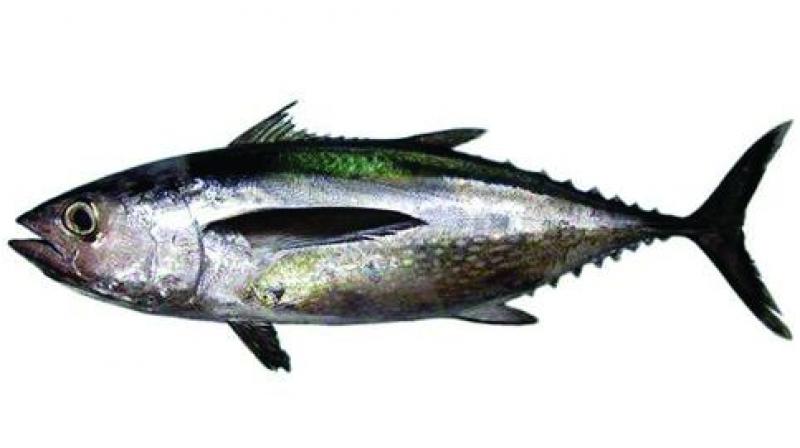India may set up special fishing zone for Tuna

Hyderabad: Despite studies revealing that many species of tuna are endangered, the Centre’s department of fisheries, at a conference here in Hyderabad, decided to explore tuna fishing in the Indian Ocean’s economic zones.
Tuna being among the most widely consumed fish across the globe, is a commercially lucrative commodity for fishing nations. In 2017, tuna’s annual commercial value was placed at $12.37 billion.
As per the Centre’s data, the Indian coastline stretches 7,500 km which constitutes 2.172 million sq km of Exclusive Economic Zone (EEZ) but the country has not exploited fishing opportunities yet.
The department of fisheries is hosting the 23rd session of The Indian Ocean Tuna Commission (IOTC) meet at Hyderabad. About 350 participants from 31 member countries, experts and international observer organisations are attending the meet.
Ms Rajni Sekhri Sibal, secretary (fisheries), said the potential for fishing in coastal India which comprised 30 per cent of the EEZ but was contributing only 1 per cent in global production. She said “There are a lot of gaps between availability and what we are able to harness from the sea.” Referring to sustainable fishing, Ms Rajni accepted that tuna fishing was not done sustainably and emphasized the need for it.
Mr Christopher O’Brian, executive secretary of IOTC, talking about the agenda of the meet, told this newspaper, “IOTC is responsible for formulation of a range of measures which will be binding on member countries which include allocation of fishing zones and resources. We also monitor who among the member countries are effectively complying with these measures.”
IOTC is an inter-governmental organisation which is responsible for the management of tuna and tuna-like species in the Indian Ocean. Headquartered in the Seychelles, the commission was formed in 1996 under the umbrella of the Food and Agriculture Organisation (FAO) of the UN.
Asked about equitable distribution of fishing opportunities, Ms Rajni said, “Coastal states have to be heard in the IOTC and there is a need for it to ensure a level playing field between developed and developing nations, tuna being a commercially lucrative natural resource.”
With 6.3 per cent of the global fish production, India ranks second in fish production and aquaculture. Given the huge economic value of tuna and tuna-like species internationally, the Centre has created a separate department for fisheries less than two months ago. Though the Centre acknowledges that sustainable fishing of tuna is needed, experts argue that instead of facilitating it with more high end equipment, fishing should be stopped.

